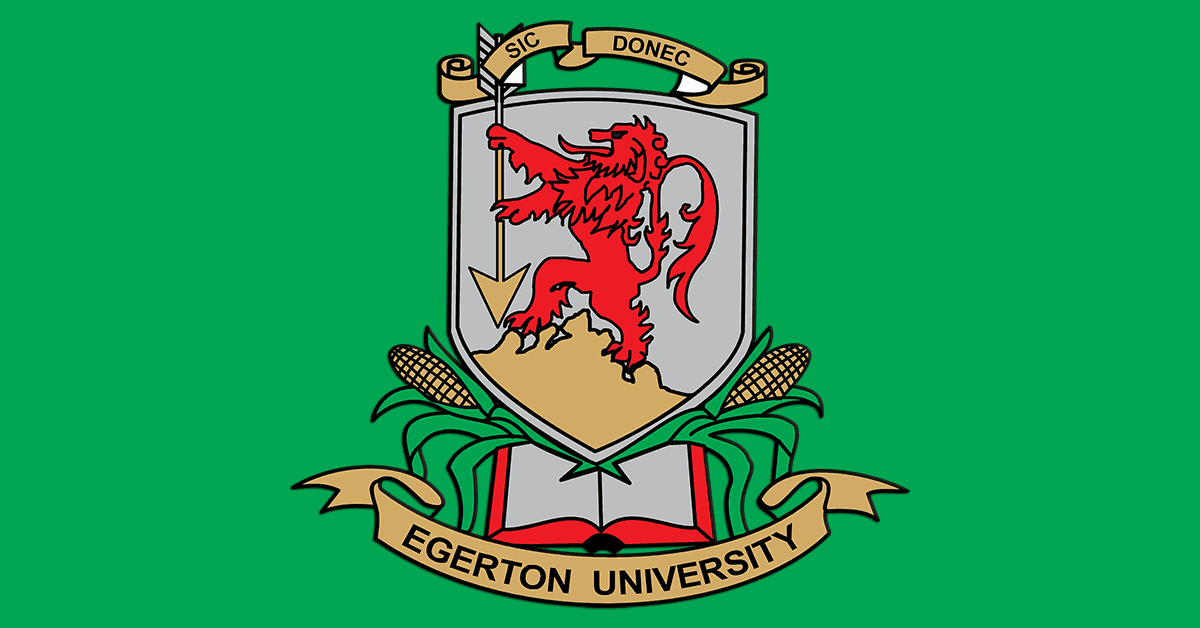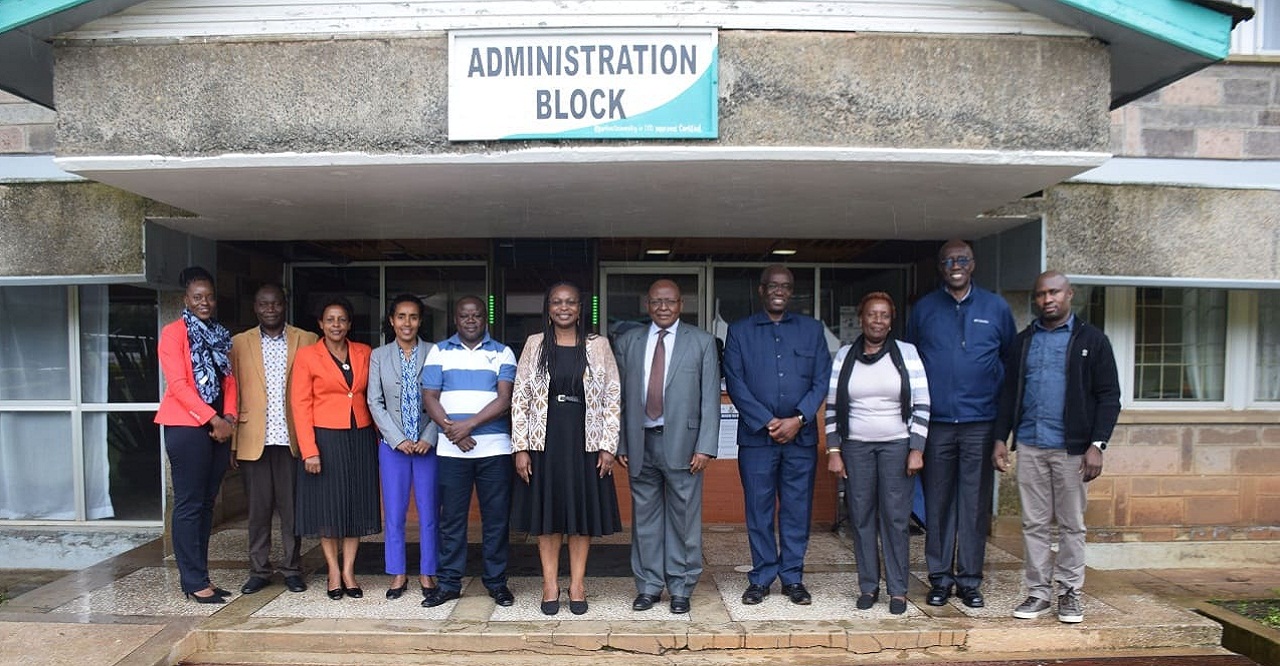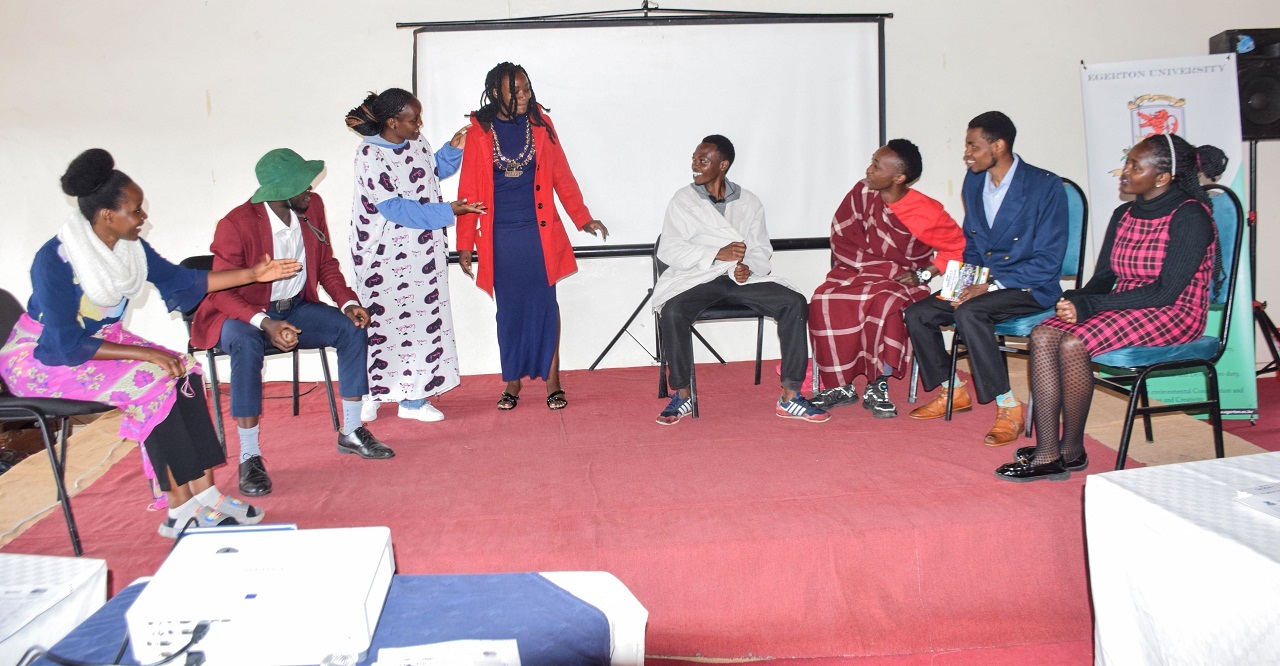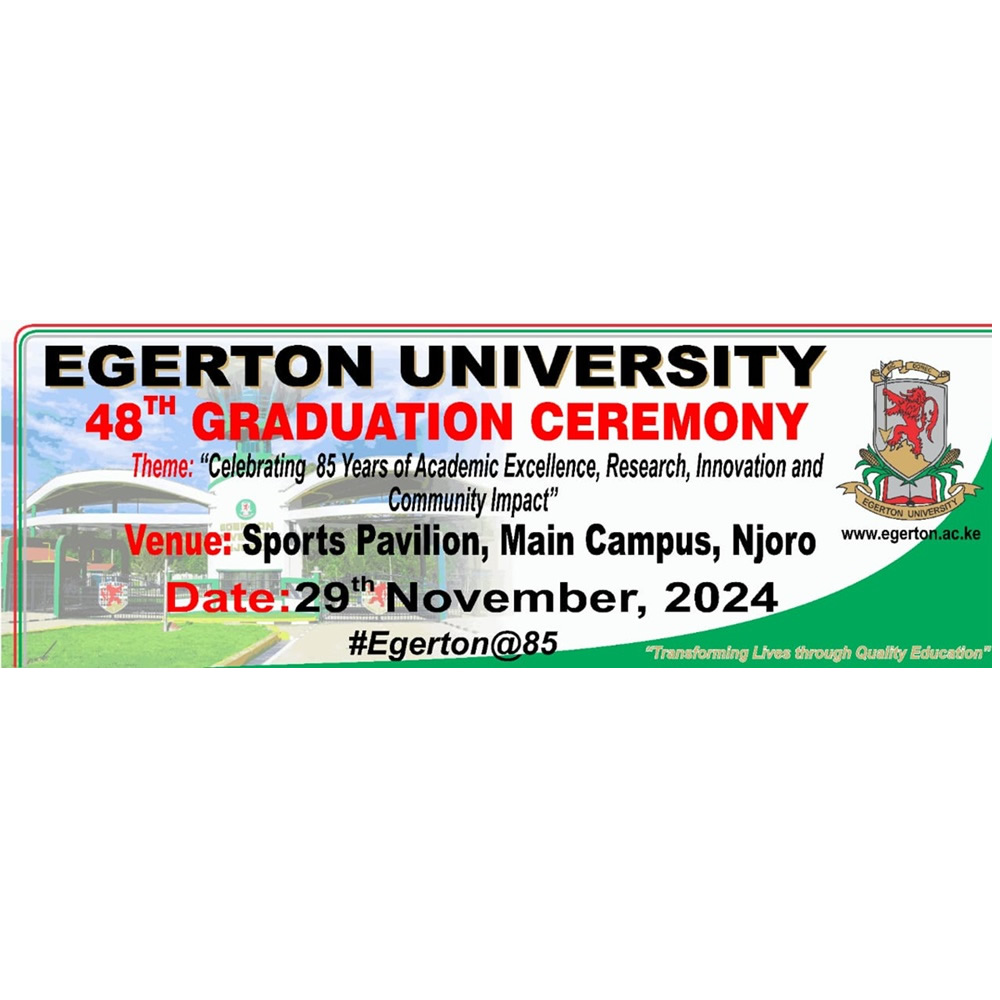Egerton University welcomed a team from the Mastercard Foundation, on 15 November 2024, led by Program Head Pauline Gangla, for a high-impact visit centered on advancing the empowerment of young people, agricultural innovation, and leadership in Africa.
The visit began with a courtesy call to Vice Chancellor Prof. Isaac Kibwage. Discussions during the meeting highlighted Egerton’s pivotal role as a partner in the Transforming African Agricultural Universities to meaningfully contribute to Africa’s Growth and Development (TagDev) 2.0 Program.
Prof. Nancy Mungai, Egerton’s TagDev 2.0 Coordinator, gave an overview of the program, which aims to equip young people with skills, experiential learning opportunities, and leadership training to drive inclusive and climate-resilient agricultural systems. “TagDev 2.0 focuses on empowering Africa’s young people to be the next generation of leaders in agriculture and agrifood systems,” she explained.
Ms Pauline Gangla lauded Egerton’s leadership and its strengths in promoting gender inclusion. “With the success of TagDev 1.0, Egerton is uniquely positioned to mentor other institutions in Africa. The University’s expertise in onboarding and transitioning women into leadership roles makes it a valuable partner in fostering economic advancement,” she noted.
Ms Gangla also acknowledged the strong leadership under Prof. Kibwage, who serves as Chairperson of the TagDev 2.0 Partnership Council. She emphasized the importance of Egerton’s role in influencing policy and collaborating with governments, given the Foundation’s indirect engagement approach.
Dr Abigail Otinga, representing the Regional Universities Forum for Capacity Building in Agriculture (RUFORUM), added that Egerton is among 12 universities directly engaged with TagDev 2.0. “Through specific projects like the Community Action Research Programme (CARP+), Egerton’s experiences and leadership from TagDev 1.0 will greatly benefit new institutions joining this transformative initiative,” she stated.
Highlighting the importance of impact-driven strategies, Mr Charles Mugoowa, the Foundation’s Lead for Program Performance and Monitoring, encouraged a shift from output-focused measures to capturing tangible outcomes. “We need to adapt our approaches, engaging with the private sector to create more opportunities for young people as public-sector jobs remain constrained,” he urged.
Ms Aster Adamu, Lead, Higher Education Programs at the Foundation, reiterated the need for creative solutions to resource challenges. She also stressed the importance of university leadership in shaping ecosystems that drive innovation and entrepreneurship.
In his remarks, Vice Chancellor Prof. Kibwage reaffirmed Egerton University’s commitment to the program, calling for greater storytelling to showcase the impact on communities. He emphasized the role of interdisciplinary collaboration in proposal development to attract high-value funding. “Innovation and inclusion must guide our efforts as we scale up TagDev 2.0,” he said.
Also, in attendance during the courtesy call were Deputy Vice Chancellor for Academics, Research, and Extension, Prof. Bernard Aduda; Deputy Vice Chancellor for Administration, Finance, and Planning, Prof. Richard Mulwa; and the Director of Marketing and Resource Mobilization, Prof. Nzula Kitaka.
The courtesy call was followed by engagements with students, faculty, and private-sector representatives. The visit provided a platform to discuss challenges faced by universities and explore collaborative solutions. It underscored the need for partnerships to drive the empowerment of young people and economic development across Africa.
Egerton’s leadership in TagDev 2.0 signals a commitment to transforming Africa’s agricultural sector through strategic initiatives and partnerships. The University’s expertise in integrating gender inclusion, experiential learning, and innovation places it at the forefront of addressing Africa’s agricultural challenges.
With the potential for deeper collaboration, the visit marks a pivotal moment in Egerton’s journey to empower Africa’s next generation of leaders.













